- Giuseppe Verdi. Dramma lirico in a prologue and three acts. 1846.
- Libretto by Temistocle Solera and Francesco Maria Piave, after the play Attila, König der Hunnen (Attila, King of the Huns) by Zacharias Werner.
- First performance at the Teatro La Fenice, Venice, on 17th March 1846.
CHARACTERS
| Attila, King of the Huns | bass |
| Ezio, a Roman general | baritone |
| Odabella, daughter of the ruler of Aquileia | soprano |
| Foresto, a knight of Aquileia | tenor |
| Uldino, Breton slave of Attila | tenor |
| Leone, an old Roman | bass |
Attila urges his warriors to sing a hymn of victory. Odabella, with her female fighters, praises the courage of Italian women. The Roman general Ezio offers Attila the Roman Empire, if he will leave Italy free, but Attila rejects the proposal. Elsewhere Foresto musters the soldiers in Aquileia that have survived Attila’s attack and wonders sadly about the fate of his beloved Odabella, now a captive. Odabella, meanwhile, plans to kill Attila, and is now joined by Foresto, who no longer doubts her fidelity. Foresto and Ezio join together against Attila, who announces his intention of marrying Odabella, but as the Romans and Italians attack the Huns, she stabs Attila to death.
Verdi’s Attila had clear contemporary political relevance, with the words of Ezio, Avrai tu l’universo, resta Italia a me (You shall have the universe, Italy remains mine), striking a particular resonance at the time, as nationalists sought Italian freedom and unity.
 Click here to download the Libretto
Click here to download the Libretto![VERDI, G.: Trovatore (Il) [Opera] (Sferisterio Opera Festival, 2016) (NTSC) VERDI, G.: Trovatore (Il) [Opera] (Sferisterio Opera Festival, 2016) (NTSC)](https://cdn.naxos.com/sharedfiles/images/cds/hires/DYN-37769.jpg)
![VERDI, G.: Vespri siciliani (I) (Sung in German) [Opera] (1955) VERDI, G.: Vespri siciliani (I) (Sung in German) [Opera] (1955)](https://cdn.naxos.com/sharedfiles/images/cds/hires/C67168-70.jpg)
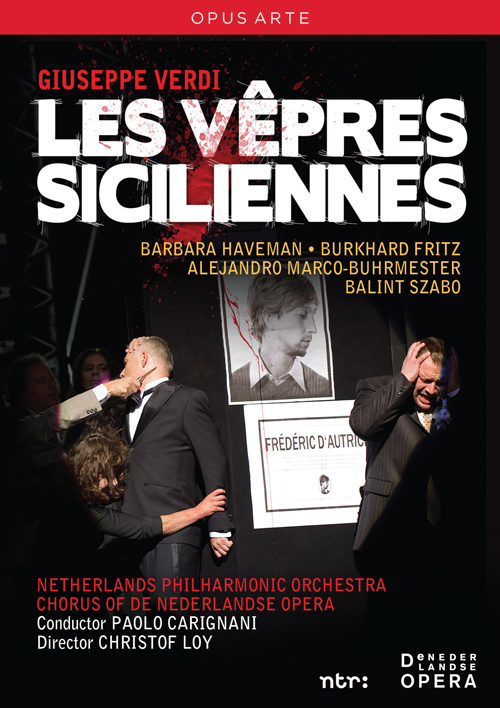
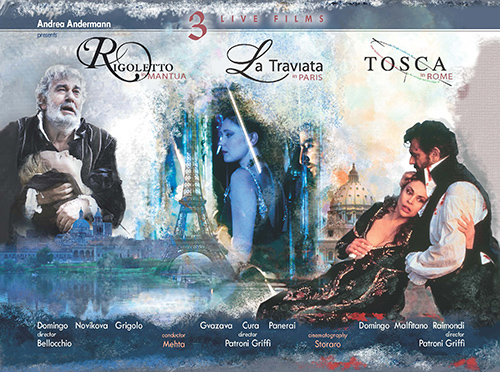
![VERDI, G.: Aida [Opera] (Dragoni, Johannsson, Dever, Ireland National Symphony, Saccani) VERDI, G.: Aida [Opera] (Dragoni, Johannsson, Dever, Ireland National Symphony, Saccani)](https://cdn.naxos.com/sharedfiles/images/cds/hires/8.660033-34.jpg)

![VERDI, G.: Alzira [Opera] (Highlights) (Cotrubas, Araiza, Bruson, Bavarian Radio Chorus, Munich Radio Orchestra, Gardelli) VERDI, G.: Alzira [Opera] (Highlights) (Cotrubas, Araiza, Bruson, Bavarian Radio Chorus, Munich Radio Orchestra, Gardelli)](https://cdn.naxos.com/sharedfiles/images/cds/hires/C057832H.jpg)
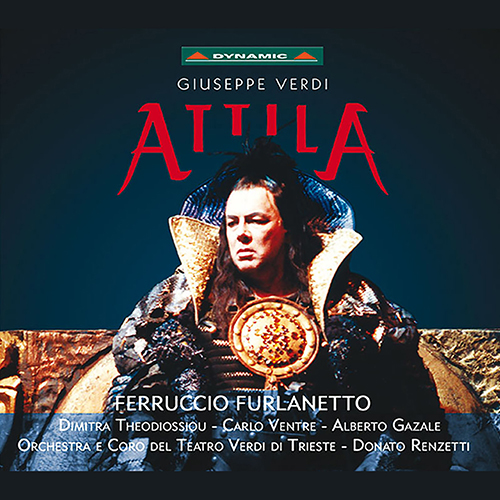
![VERDI, G.: Attila [Opera] (Teatro Comunale di Bologna, 2016) (NTSC) VERDI, G.: Attila [Opera] (Teatro Comunale di Bologna, 2016) (NTSC)](https://cdn.naxos.com/sharedfiles/images/cds/hires/748708.jpg)
![VERDI, G.: Ballo in maschera (Un) [Opera] (Pavarotti, Cappuccilli, G. Lechner, Schemtschuk, Nádor, Vienna State Opera Chorus and Orchestra, Abbado) VERDI, G.: Ballo in maschera (Un) [Opera] (Pavarotti, Cappuccilli, G. Lechner, Schemtschuk, Nádor, Vienna State Opera Chorus and Orchestra, Abbado)](https://cdn.naxos.com/sharedfiles/images/cds/hires/C907162I.jpg)
![VERDI, G.: Ballo in maschera (Un) [Opera] (Royal Opera House, 1975) (NTSC) VERDI, G.: Ballo in maschera (Un) [Opera] (Royal Opera House, 1975) (NTSC)](https://cdn.naxos.com/sharedfiles/images/cds/hires/OA1236D.jpg)
![VERDI, G.: Battaglia di Legnano (La) [Opera] (Previtali) (1951) VERDI, G.: Battaglia di Legnano (La) [Opera] (Previtali) (1951)](https://cdn.naxos.com/sharedfiles/images/cds/hires/9.80882-83.jpg)
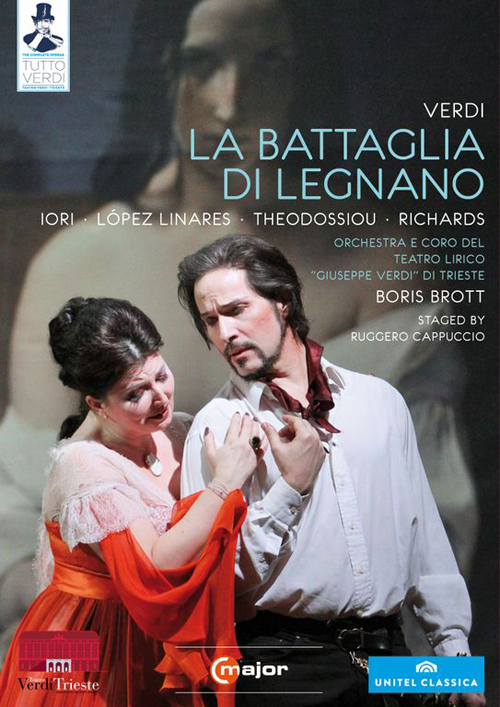
![VERDI, G.: Corsaro (Il) [Opera] (Michailov, Bruson, Damato, Sburlati, Parma Teatro Regio Chorus and Orchestra, Palumbo) VERDI, G.: Corsaro (Il) [Opera] (Michailov, Bruson, Damato, Sburlati, Parma Teatro Regio Chorus and Orchestra, Palumbo)](https://cdn.naxos.com/sharedfiles/images/cds/hires/CDS468.jpg)
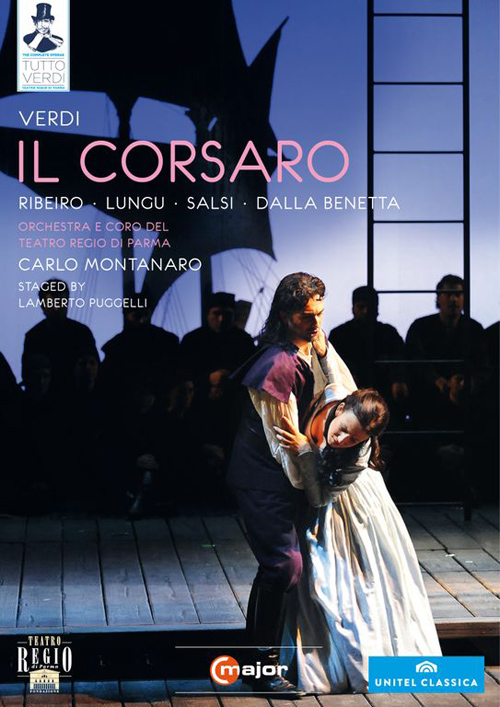

![VERDI, G.: Don Carlo [Opera] (Teatro Regio di Parma, 2016) (NTSC) VERDI, G.: Don Carlo [Opera] (Teatro Regio di Parma, 2016) (NTSC)](https://cdn.naxos.com/sharedfiles/images/cds/hires/DYN-37776.jpg)
![VERDI, G.: Due Foscari (I) [Opera] (Coro del Teatro Regio di Parma, Filarmonica Arturo Toscanini, Orchestra Giovanile della Via Emilia, Arrivabeni) VERDI, G.: Due Foscari (I) [Opera] (Coro del Teatro Regio di Parma, Filarmonica Arturo Toscanini, Orchestra Giovanile della Via Emilia, Arrivabeni)](https://cdn.naxos.com/sharedfiles/images/cds/hires/CDS7865.02.jpg)
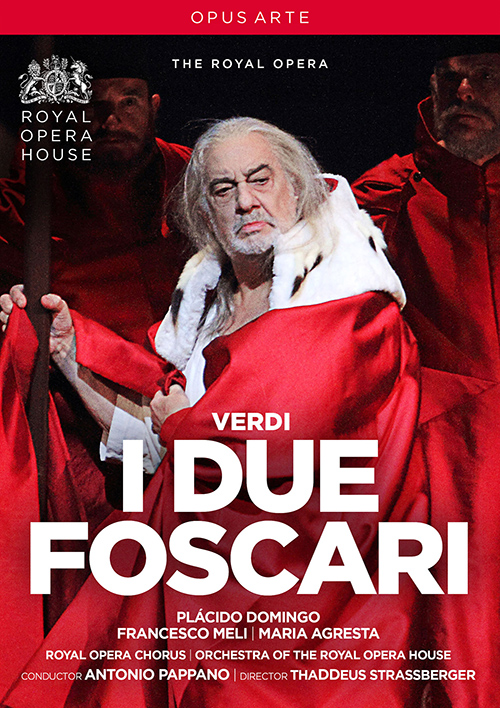

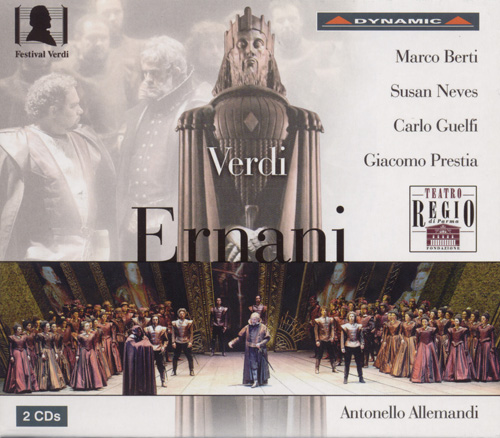
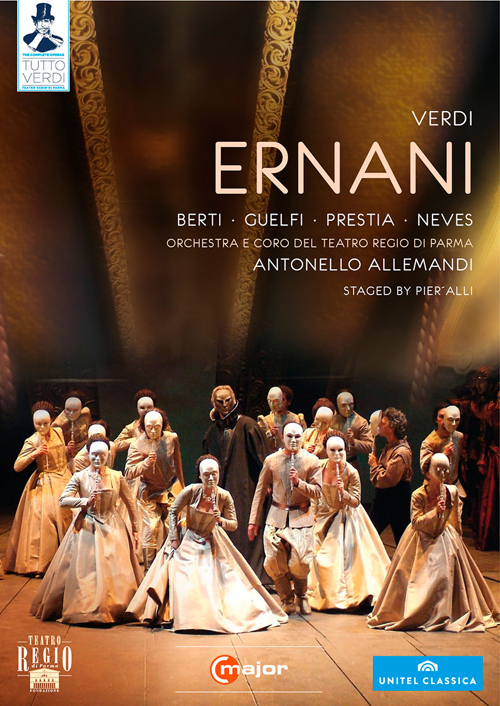
![VERDI, G.: Falstaff [Opera] (Trimarchi, Servile, Faulkner, Hungarian State Opera Chorus and Orchestra, Humburg) VERDI, G.: Falstaff [Opera] (Trimarchi, Servile, Faulkner, Hungarian State Opera Chorus and Orchestra, Humburg)](https://cdn.naxos.com/sharedfiles/images/cds/hires/8.660050-51.jpg)
![VERDI, G.: Falstaff [Opera] (Teatro Real, 2019) (NTSC) VERDI, G.: Falstaff [Opera] (Teatro Real, 2019) (NTSC)](https://cdn.naxos.com/sharedfiles/images/cds/hires/BAC177.jpg)
![VERDI: Forza del Destino (La) [Opera] (Branchini, Zulian, Felice, Rovigo Teatro Sociale Chorus, Orchestra Regionale Filarmonia Veneta, Karitynos) VERDI: Forza del Destino (La) [Opera] (Branchini, Zulian, Felice, Rovigo Teatro Sociale Chorus, Orchestra Regionale Filarmonia Veneta, Karitynos)](https://cdn.naxos.com/sharedfiles/images/cds/hires/CDS512.jpg)
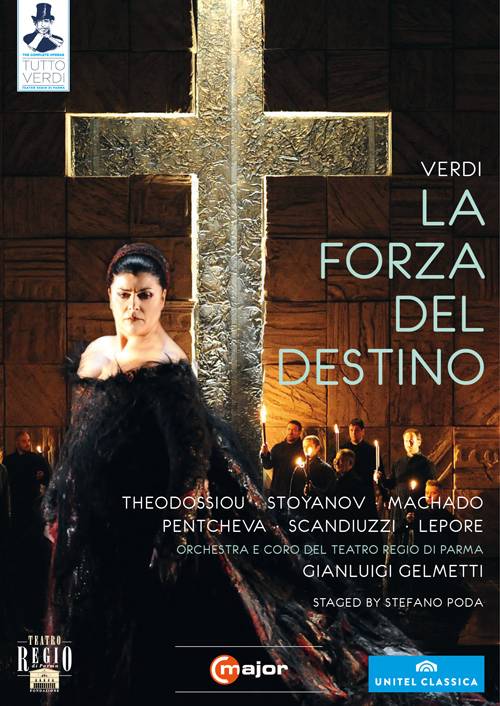
![VERDI, G.: Un giorno di regno [Opera] (Kiria, Roma Sinfonietta, Bonolis) VERDI, G.: Un giorno di regno [Opera] (Kiria, Roma Sinfonietta, Bonolis)](https://cdn.naxos.com/sharedfiles/images/cds/hires/TC812290.jpg)
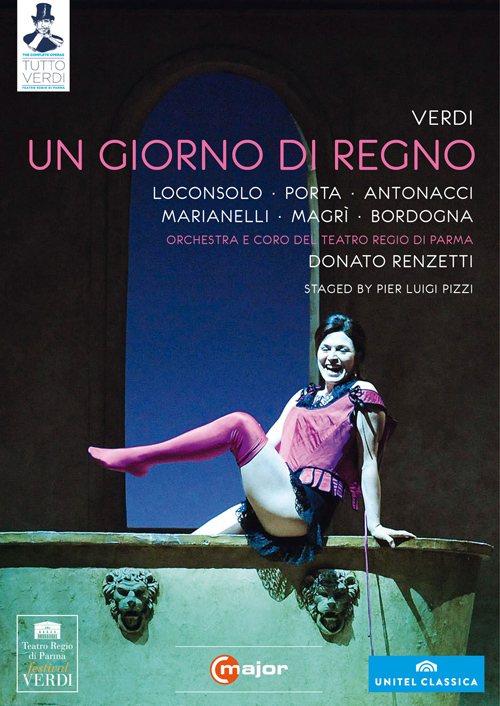
![VERDI, G.: Giovanna d'Arco [Opera] (Pratt, Borras, Julian Kim, Bari Teatro Petruzzelli Chorus, Orchestra Internazionale d'Italia, Frizza) VERDI, G.: Giovanna d'Arco [Opera] (Pratt, Borras, Julian Kim, Bari Teatro Petruzzelli Chorus, Orchestra Internazionale d'Italia, Frizza)](https://cdn.naxos.com/sharedfiles/images/cds/hires/CDS7676.jpg)
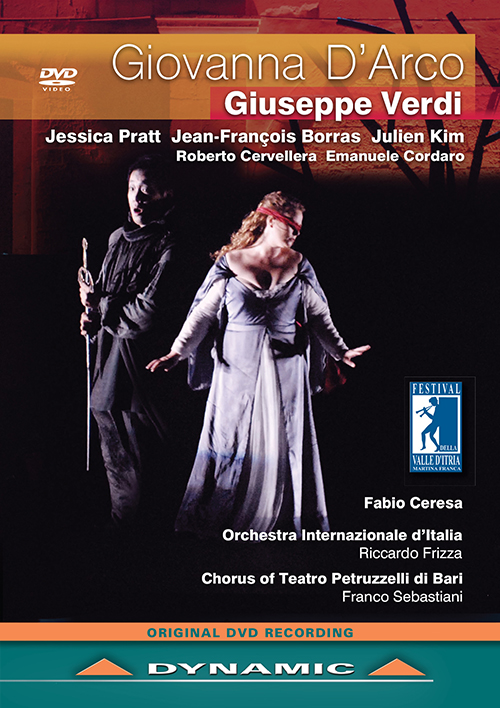
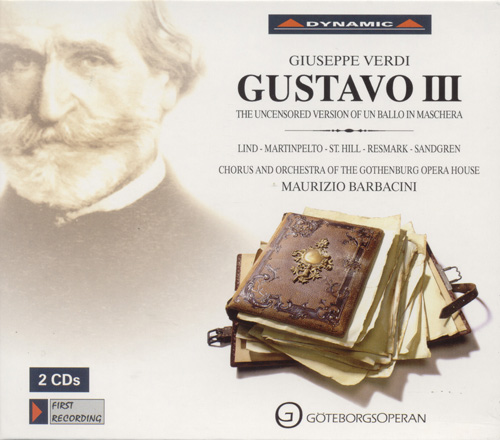
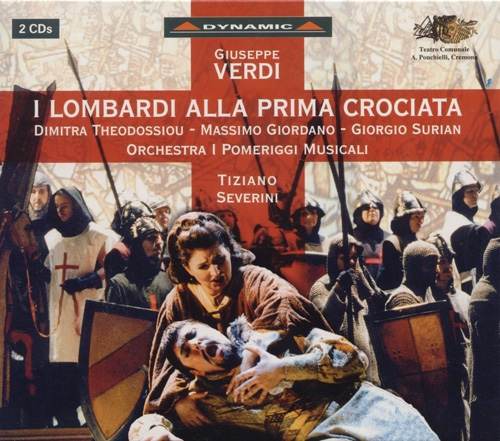
![VERDI, G.: Lombardi alla prima crociata (I) [Opera] (Teatro Regio Torino, 2018) (NTSC) VERDI, G.: Lombardi alla prima crociata (I) [Opera] (Teatro Regio Torino, 2018) (NTSC)](https://cdn.naxos.com/sharedfiles/images/cds/hires/DYN-37826.jpg)
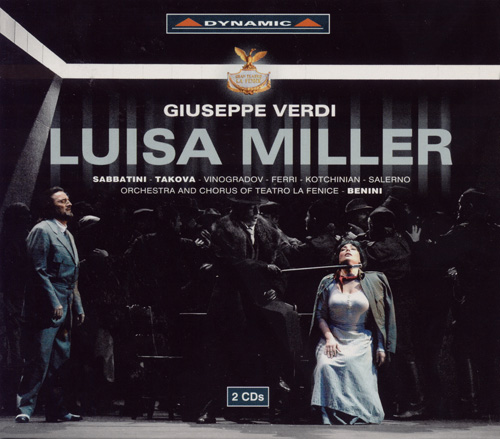
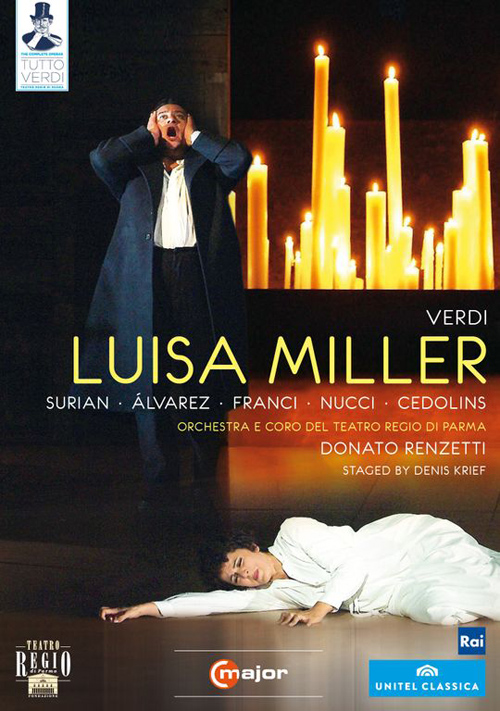
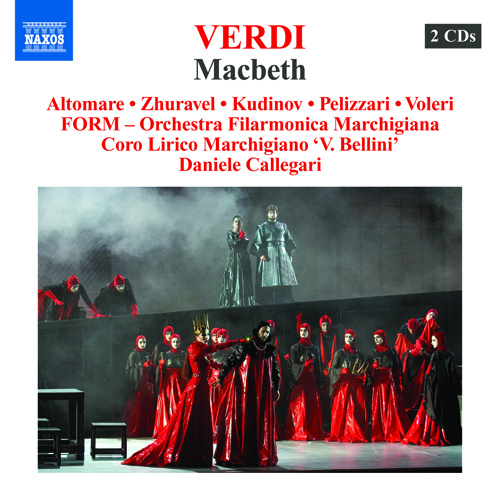
![VERDI, G.: Macbeth [Opera] (Teatro Massimo, 2017) (NTSC) VERDI, G.: Macbeth [Opera] (Teatro Massimo, 2017) (NTSC)](https://cdn.naxos.com/sharedfiles/images/cds/hires/2.110578.jpg)
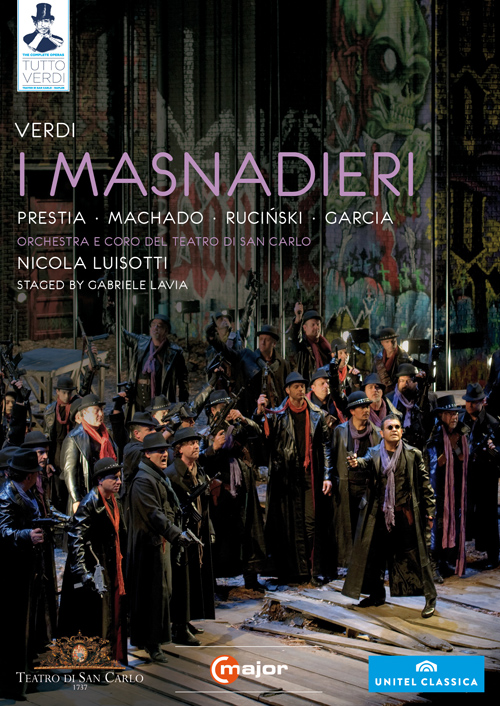
![VERDI, G.: Nabucco [Opera] (Enkhbat, Magrì, Pertusi, Hernández, Stroppa, Coro del Teatro Regio di Parma, Filarmonica Arturo Toscanini, Ciampa) VERDI, G.: Nabucco [Opera] (Enkhbat, Magrì, Pertusi, Hernández, Stroppa, Coro del Teatro Regio di Parma, Filarmonica Arturo Toscanini, Ciampa)](https://cdn.naxos.com/sharedfiles/images/cds/hires/CDS7867.jpg)
![VERDI, G.: Nabucco [Opera] (Arena di Verona, 2017) (NTSC) VERDI, G.: Nabucco [Opera] (Arena di Verona, 2017) (NTSC)](https://cdn.naxos.com/sharedfiles/images/cds/hires/BAC148.jpg)
![VERDI, G.: Oberto [Opera] (A. Gans, Lombardi Mazzulli, Custer, Reinhardt, Intxausti, Giessen State Theatre, Hofstetter) VERDI, G.: Oberto [Opera] (A. Gans, Lombardi Mazzulli, Custer, Reinhardt, Intxausti, Giessen State Theatre, Hofstetter)](https://cdn.naxos.com/sharedfiles/images/cds/hires/OC959.jpg)
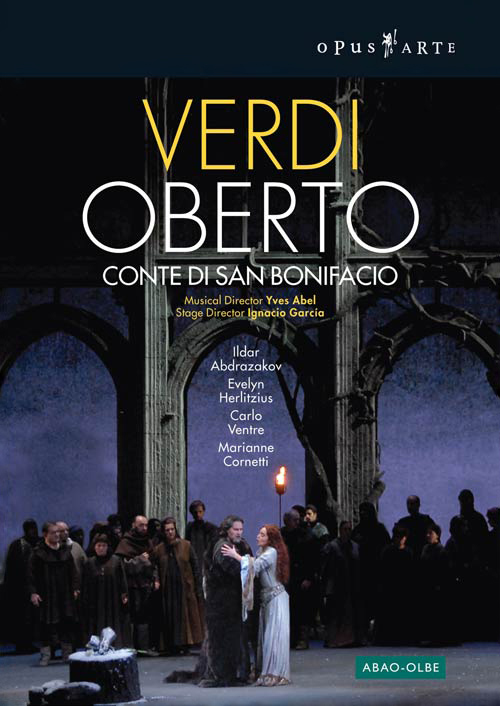
![VERDI, G.: Otello [Opera] (R.D. Smith, Angeletti, Catana, Orfeón Donostiarra, Oviedo Filarmonía, Haider) VERDI, G.: Otello [Opera] (R.D. Smith, Angeletti, Catana, Orfeón Donostiarra, Oviedo Filarmonía, Haider)](https://cdn.naxos.com/sharedfiles/images/cds/hires/8.660357-58.jpg)
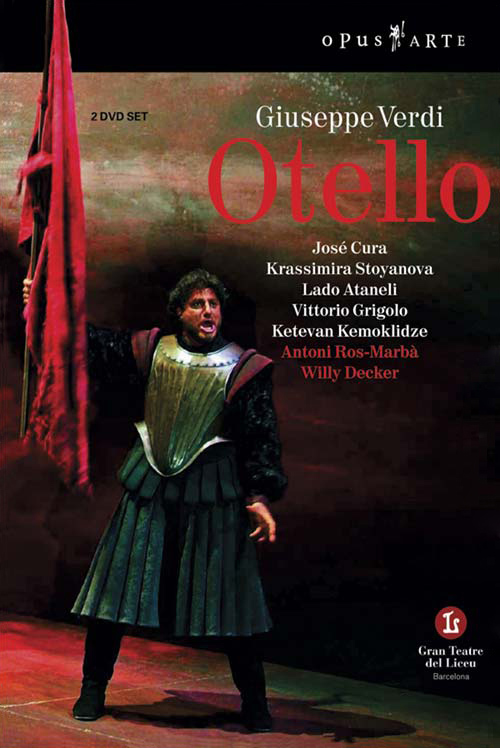
![VERDI, G.: Rigoletto [Opera] (Tumagian, Ferrarini, Ramiro, Slovak Philharmonic Chorus, CSR Symphony Orchestra, Bratislava, Rahbari) VERDI, G.: Rigoletto [Opera] (Tumagian, Ferrarini, Ramiro, Slovak Philharmonic Chorus, CSR Symphony Orchestra, Bratislava, Rahbari)](https://cdn.naxos.com/sharedfiles/images/cds/hires/8.660013-14.jpg)

![VERDI, G.: Simon Boccanegra [Opera] (Zürich Opera, 2020) (NTSC) VERDI, G.: Simon Boccanegra [Opera] (Zürich Opera, 2020) (NTSC)](https://cdn.naxos.com/sharedfiles/images/cds/hires/ACC-20510.jpg)
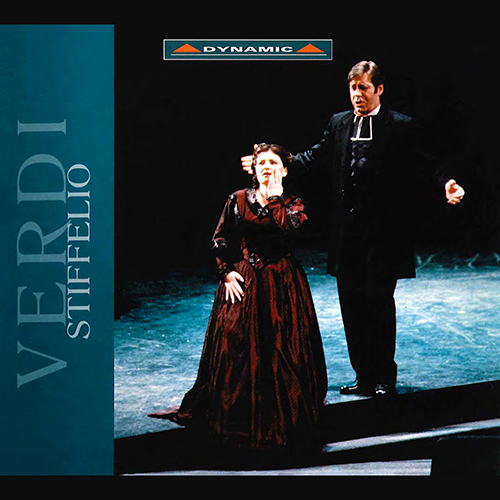
![VERDI, G.: Stiffelio [Opera] (Teatro Regio di Parma, 2017) (NTSC) VERDI, G.: Stiffelio [Opera] (Teatro Regio di Parma, 2017) (NTSC)](https://cdn.naxos.com/sharedfiles/images/cds/hires/2.110590.jpg)
![VERDI, G.: Traviata (La) [Opera] (Krause, Ramiro, Tichy, CSR Symphony Orchestra, Bratislava, Rahbari) VERDI, G.: Traviata (La) [Opera] (Krause, Ramiro, Tichy, CSR Symphony Orchestra, Bratislava, Rahbari)](https://cdn.naxos.com/sharedfiles/images/cds/hires/8.660011-12.jpg)
![VERDI, G.: Traviata (La) [Opera] (Royal Opera House, 2019) (NTSC) VERDI, G.: Traviata (La) [Opera] (Royal Opera House, 2019) (NTSC)](https://cdn.naxos.com/sharedfiles/images/cds/hires/OA1292D.jpg)
![VERDI, G.: Trovatore (Il) [Opera] (Frusoni, Longhi, Tchistjakova, Budapest Festival Chorus, Hungarian State Opera Orchestra, Humburg) VERDI, G.: Trovatore (Il) [Opera] (Frusoni, Longhi, Tchistjakova, Budapest Festival Chorus, Hungarian State Opera Orchestra, Humburg)](https://cdn.naxos.com/sharedfiles/images/cds/hires/8.660023-24.jpg)